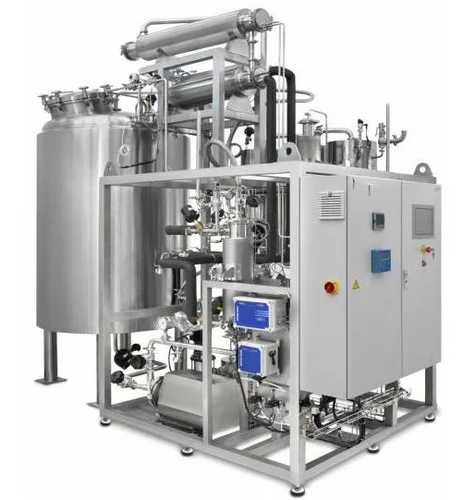WFI Plant - Water For Injection System
A WFI (Water for Injection) plant, also known as a Water for Injection system, is a specializ water treatment system in pharmaceutical and biotechnology industries to produce high-quality water for use in the production of injectable medications, such as parenteral solutions, intravenous drugs, and sterile products.
Process Steps:
Pretreatment: The pretreatment stage involves the removal of suspend solids, particulate matter, and large contaminants from the feed water using processes such as filtration or clarification.
Reverse Osmosis (RO): Reverse osmosis is commonly use in WFI plants to remove dissolve ions, organic compounds, and other impurities.
Electrodeionization (EDI): The EDI process is often employ after reverse osmosis to further remove residual ions and achieve high-purity water.
Distillation: Distillation is a key step in the WFI process. It involves heating the water to its boiling point and then condensing the vapor to produce purify water.
Storage and Distribution: Once the water has been purifiy, it is typically stored in a dedicat WFI storage tank under control conditions to maintain its quality.
Throughout the entire WFI process, rigorous monitoring and control measures are implement to ensure compliance with regulatory standards and to guarantee the water’s quality and purity.
Significance & Advantages
The WFI plant ensures that the water produce meets the stringent requirements for safety, efficacy, and purity, helping to maintain the integrity and quality of pharmaceutical products.
The Water for Injection system is design to meet the stringent requirements of pharmacopoeias, including the United States Pharmacopeia (USP) and the European Pharmacopoeia (EP), which define the quality standards for water use in pharmaceutical applications





